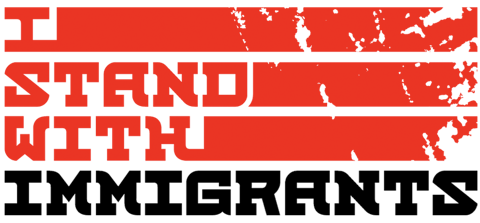Emily & Jonel & Zumbi
“Her name means ‘lord of war’ – from the jump we thought that she needed to know that her breath is a battle.”
Jonel’s story:
My parents came from Haiti in the late 1960’s. My mother went to nursing school in Mexico. My father came through Jamaica; he did his undergraduate degree there. My mother’s first job was at Rikers Island as a nurse. My father’s first job was in the NYPD as a bookkeeper, believe it or not.
I was the third of four sons. We were all born in Queens, but we always went back to Haiti, so my first memories are there. My parents moved back, they were successful and they wanted to give back. By the time I was six or seven, I ended up in Miami.
My father always taught us that he was sailing down two rivers, one in the States and one in Haiti. We went to a multicultural Seventh Day Adventist church growing up, and there were like seven different nationalities there. My parents spoke Creole at home and so my first languages were French and Creole. French was the first language I forgot coming here, but Creole you can never lose – it’s an African tongue.
We hope and also feel innately that our daughter Zumbi will be an internationalist. That’s revolutionary for a girl of African descent in the West. She’ll be free to love who she wants to love, to study whatever she wants to study. She will be free to do whatever she likes; all we wish for her is success and health. That’s part of being liberated, and that’s revolutionary. Her name means “lord of war.” From the jump we thought that she needed to know that her breath is a battle.
Africans in America are just as much immigrants here as anyone else. It’s been difficult for the African American, not only because of the artificial construct we call “race”, but also it is difficult to meld in and not become a foreigner. Every European here is an immigrant.
Emily’s story:
My mother and father are from North Carolina. That’s the extent of what we really know about our heritage. We found some lineage into Europe, but not as far as back as to Africa — that is all unknown. I enjoy being married to someone who has that connection back to another country. I enjoy his culture and having someone else to connect to. In addition to being American, I would love to have another place that I have a deep connection to. But you know, I have African American Southern heritage. Even though I was raised in New Jersey, I still grew up with that Southern hospitality and respect.
I think I’ve come full circle, and I’m now content with what I do know about my heritage. Knowing my roots doesn’t matter as much because we are all still connected. It’s just a matter of space, where the boat stopped. I think my daughter is just such a good mix of the African diaspora.
Being in the medical field, I feel like there is something about connecting with a person who has a shared experience, especially when you’re sick, in your most vulnerable time; to look someone in the face and be able to kind of get what they’re going through. Even if we don’t have the same story, it’s about how I relate to you. And that is something lacking for immigrants – they aren’t seen as human beings, they are seen as things. In my field, it’s not even about the medicine we provide, it’s more about the emotion and the empathy. That’s a critical part of healing that you can’t measure with a tool or survey, but it is invaluable.
#CELEBRATE IMMIGRANTS
We all know someone with an immigration experience or have an immigrant heritage story of our own. Join us to stay updated as we #CelebrateImmigrants across the country!

